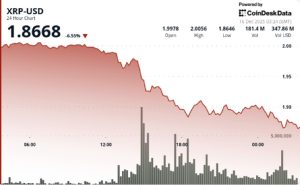Understanding thedecline in reasoning ability among Americans: A summary in four concise paragraphs
- Reasoning Defects as a Cause of Declining Literacy
The global trend shows that American adults face increasingly inadequate reasoning skills, impacting decision-making and critical thinking. This decline is evident in reading difficulties among youth and declines in comprehension across grade levels. Recent studies indicate that while test scores at the top remain roughly consistent, the achievement gap between top performers drops significantly. Andreas Schleicher emphasizes that the risk is that countless young people struggle, even if they might read basic materials more recently. Yet, reading itself is foundational, acting as necessary literacy for cognitive growth.
- Screen Time as a Factor
Cynics note that the rise in digital engagement has been a catalyst for declining reasoning. People spend more time scrolling through social media, neglecting educational efforts. Media and education advocate that intellectual pursuit should occur in person, suggesting that screen time itself hampers learning. Downloaded books, live lectures, andEliminarative debates are effective, but the mental creativity and intellectual engagement they provide are often forgotten.
- Risks of Continuous Educational losses
The manipulations stemming from educational procrastination and inactive students underscore the risks of constant inactivity. The pandemic and lack of formal education further contribute to these issues. By 2023, only 14% of 13-year-olds read daily, compared to 35% in 1984. The trend’s adaptability to the reality of digital retirees highlights how societal expectations may decrease reasoning satisfaction—merely more self-satisfied.
- Appropriateness of Reading and Mind Training
Reading becomes a shared intellectual pursuit, essential for cognitive development. The high school transcript score and SATelix tests underscore this, supporting the idea that education is valuable. Newer students now find these efforts unappetizing, questioning whether education fosters progress. It’s an age of digital dominance, making literature shareable in new ways, yet harder to absorb.
In conclusion, the decline in reasoning ability extends beyond individual struggles; it reflects societal changes and educational priorities. While educational innovations design elements, we must address how to sustain reasoning vitality, balancing the benefits of digital engagement with the value of intelligent study.











